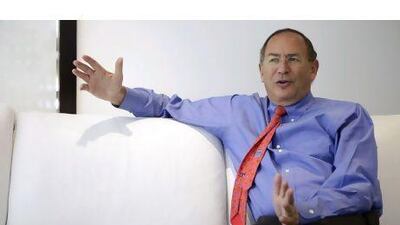The Abu Dhabi film company Image Nation plans to boost the number of Emirati movies it makes to six a year by 2016.
Video:City of Life
More Emirati films hope to emulate the success of this blockbuster.
The company's first local productions - a coming-of-age story called Sea Shadow and the horror thriller Djinn - are set for release this year.
Image Nation's mandate is to build a viable film industry in the UAE, which has played host to filming in just a handful of feature films such as City of Life, Mission: Impossible 4, Syriana, and The Kingdom.
As part of this, Image Nation plans to boost the number of Emirati films it produces from next year. The company is part of Abu Dhabi Media, which also owns and publishes The National.
"Scaling up our local productions will help get more films into the market and give more young film-makers the chance to be heard," said Mohammed Al Mubarak, the chairman of Image Nation.
"Our human capital is Abu Dhabi's scarcest and most precious resource. It's our duty to help it grow and develop," he said.
Michael Garin, the chief executive of Image Nation, said a "five-year financing commitment" was in place to boost the number of local productions.
"It's going from the two pictures a year that we made this year up to six pictures in the fifth year," he said.
The films Image Nation intends to make will include Emirati themes - but will not necessarily be set in the UAE, Mr Garin said.
"Local doesn't mean physical production. It means subject matter and talent," he said. "If there's not a dominant Emirati element, it's not for us."
Upon its launch in 2008, Image Nation was described as a US$1 billion (Dh3.67bn) "film fund". It is believed that that figure includes the aggregate of the proceeds of various projects being reinvested in other films; the actual investment committed to by the Abu Dhabi Government is believed to amount to about $200 million.
Mr Garin said the focus on Emirati films marked a "reset of the priorities" but would not require any additional financing.
"We can live very well on the original funding that the company received. We're just reallocating some of it, and refocusing," he said.
Mr Al Mubarak and Mr Garin yesterday announced a new structure for the company, along with a new corporate branding.
It is now made up of two divisions, Image Nation Abu Dhabi and Image Nation International.
"Our new company structure reflects Image Nation's mission to build the foundations of a strong local film industry in the UAE," said Mr Al Mubarak.
The company has appointed Mohammed Al Otaiba as head of Image Nation Abu Dhabi, which will oversee the creation of the Emirati films.
Image Nation has 20 permanent employees of whom five are Emiratis. The workforce tops 100 when the company is producing a film.
The development of a local talent base is a priority to avoid a "brain drain", said Mr Garin.
"If we don't provide opportunities for some of our most talented young people here, they're not going to lose their passions - we're going to lose them," he said.
"They'll go to Cairo or Beirut or London or New York or LA to pursue their passions. As has happened in many other parts of the world, [this would] result in a brain drain."

